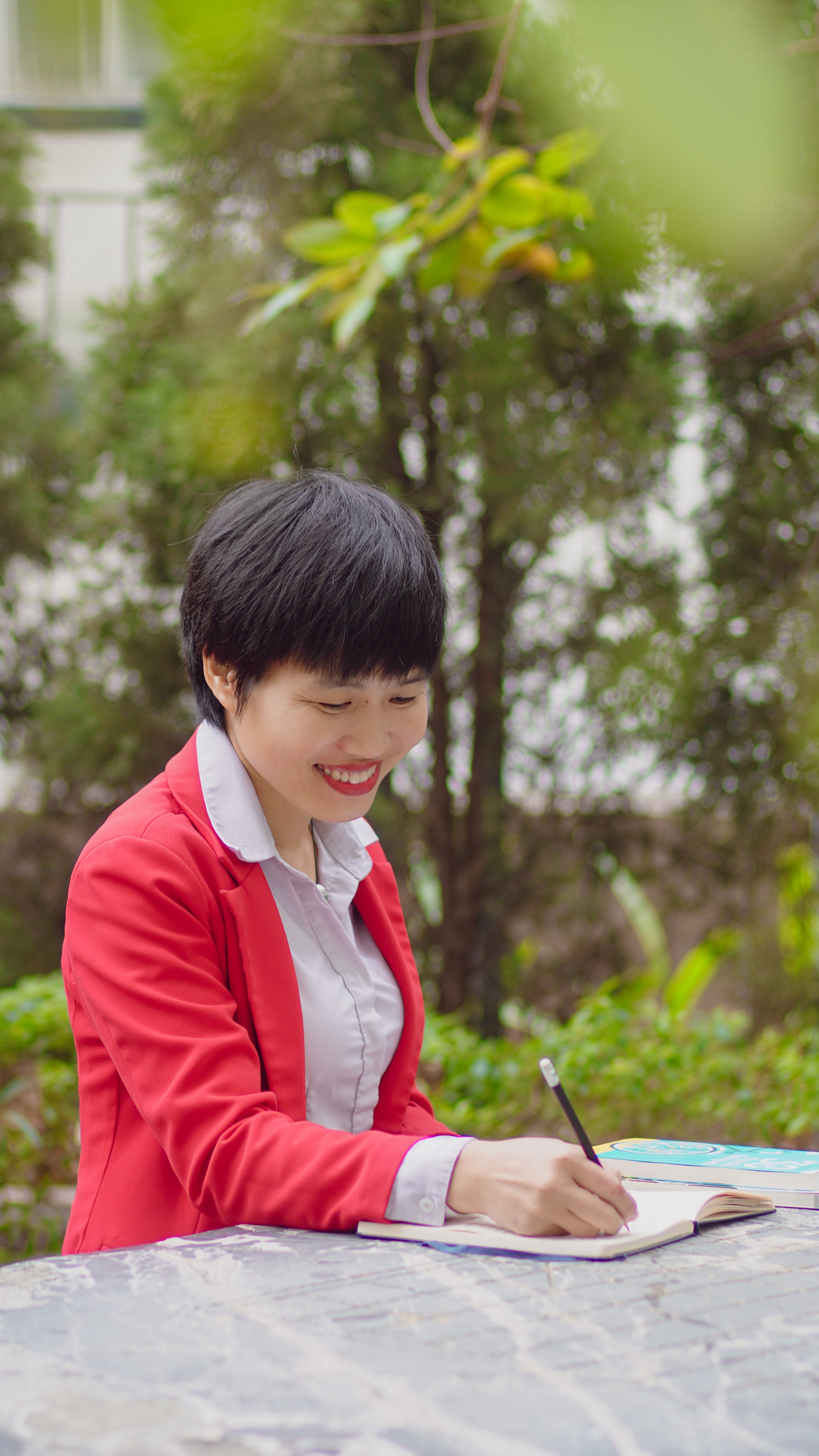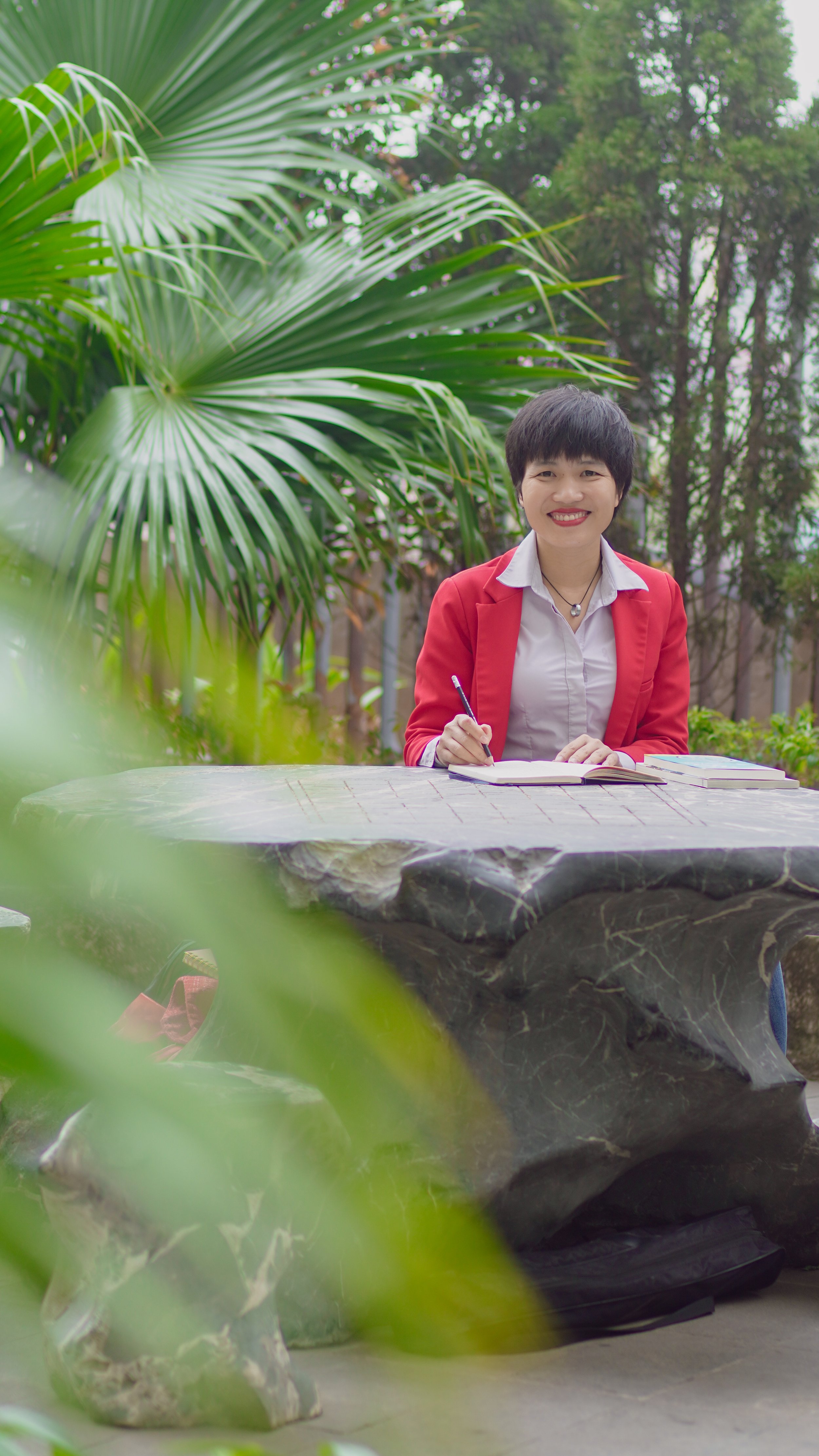Last week was the week of restarting after the Lunar New Year in Vietnam for me, maybe it was the same for you? What has been your keyword to reflect on during the past week? I chose the keyword, 'LOVE AGAIN & AGAIN', as we come back to something, it is useful to refresh our love for it. This keyword is also related to a book Jay Shetty released last week, '8 Rules of Love'. In addition to the context of love between people, these rules can suggest ways for us to have lasting love for the work we do and will do.
By reflecting on Jay's book, I hope we can revisit our own 'book' - the deeper part of ourselves!
The eight love rules Jay shares include:
Rule 1: Let Yourself Be Alone.
Rule 2: Don't Ignore Your Karma.
Rule 3: Define Love Before You Think it, Feel it, or Say it.
Rule 4: Your Partner is Your Guru.
Rule 5: Purpose Comes First.
Rule 6: Win or Lose Together.
Rule 7: You Don't Break in a Breakup.
Rule 8: Love again and again.
Which rule resonates with you the most? This time, I feel triggered by rule number 8: Love again and again.
In the bigger context of a loving relationship, I recall the story of my friend Aaron - his parents have lived together for nearly 50 years, and it still feels like the first days of their love. One of the secrets of their long-lasting happy relationship is, 'To always live each day as an opportunity to make the partner see life will be better when having you around him or her - every day is a day to love like the first day you fell in love with each other'.
An example in Jay's book can also help us relate to this point: when you first meet your lover if you need to do something for them - for example, wait for them for hours, maybe you don't feel that bad, but later when you both get closer – you will feel very uncomfortable when waiting.
At work, we can also apply this principle – if you wake up every day, you set a purpose and action to make your work better because of your presence – you will be excited and add better value to that work. You love the work as if it was the first days doing it. You do it every day so that you can experience the deeper levels of that work.
This coming week, we can reflect to see how to love what we do again:
- One thing I can do to make me feel and act like I'm falling in love with someone for the first time. Enthusiasm, energy, dedication…
- One thing I can do to show my love to the person I love to the fullest. With my parents. With my siblings. With my colleagues...
What principles do you have to keep the fire of your love alive? Here are some ways to nurture the fire of love at work:
- Identify the mission of that job, and see how it aligns with your mission and core values.
- Identify a big enough reason to do the job: mission alignment, core values alignment, and other factors relevant to your priorities at the moment (development of mindset, capacity? relationship? finance? environment?)
- Decide how long to do something, and give it your ‘all’ during that time.
- Regularly review your development: what have you improved?
- Regularly share your vision, mission, and concerns with colleagues who trust your abilities.
- Don't hesitate to ask for help from others.
- Help others on the team.
- Co-create experiences with the team and work-related partners.
-There's a 'buddy' person at work.
- List the things you are grateful for each day.
- Regularly reconnect why you started and what you are grateful for every day.
A loving productive week for all of us!
=====================
CHIÊM NGHIỆM CHỦ NHẬT CỦA BẠN
Tuần vừa rồi là tuần khởi động trở lại sau dịp Tết âm ở Việt Nam đối với mình, với bạn cũng vậy? Từ khóa của bạn là gì để chiêm nghiêm lại tuần qua và lên kế hoạch cho tuần tới? Để chiêm nghiệm lại cả tuần qua, mình chọn từ khóa ‘LOVE AGAIN & AGAIN – YÊU ĐI YÊU LẠI’. Khi chúng ta mới quay trở lại làm một việc gì đó, 'làm mới' và tiếp tục yêu việc đó. Từ khóa này có liên quan đến một cuốn sách Jay Shetty vừa cho ra tuần qua ‘8 quy tắc của tình yêu’. Ngoài bối cảnh tình yêu giữa con người, những quy tắc này có thể gợi mở cho chúng ta cách để phát triển tình yêu bền vững với những công việc chúng ta đang và sẽ làm.
Qua việc cùng chiêm nghiệm sách của Jay, bạn và mình có thể chiêm nghiệm về cuốn sách quan trọng trong mỗi chúng ta - chính bản thân chúng ta - để chúng ta có thể hiểu hơn về chính mình, mỗi ngày!
Tám quy tắc tình yêu mà Jay chia sẻ bao gồm:
Rule 1: Let Yourself Be Alone (Có thời gian dành riêng cho bản thân)
Rule 2: Don't Ignore Your Karma (Không bỏ qua quy tắc luân hồi)
Rule 3: Define Love Before You Think it, Feel it, or Say it (Định nghĩa tình yêu trước khi nghĩ về nó, cảm nhận nó và nói ra nó)
Rule 4: Your Partner is Your Guru (Để cho đối tác của bạn là người thầy ‘Guru’ của bạn)
Rule 5: Purpose Comes First (Mục đích là trên hết)
Rule 6: Win or Lose Together (Thắng hay thua đều cùng nhau)
Rule 7: You Don't Break in a Breakup (Không suy sụp khi chia tay)
Rule 8: Love again and again (Yêu đi yêu lại)
NGUYÊN TẮC NÀO CHẠM ĐẾN BẠN NHẤT?
Trong tuần này, nguyên tắc số 8 khiến mình tâm đắc: yêu đi, yêu lại.
Trong bối cảnh mối quan hệ tình yêu, nguyên tắc này gợi cho mình chuyện của người bạn Aaron – bố mẹ bạn sống với nhau gần 50 năm cuộc đời và có cảm giác vẫn như những ngày đầu mới yêu nhau. Một trong những bí quyết bố mẹ Aaron chia sẻ đó là luôn luôn sống mỗi ngày như là một cơ hội để khiến đối phương thấy cuộc sống sẽ tốt đẹp hơn khi có mình bên cạnh họ - mỗi ngày là một ngày để yêu như những ngày đầu.
Một ví dụ mà Jay cũng đưa ra trong cuốn sách giúp chúng ta liên hệ đến ý này: khi bạn mới gặp người yêu những ngày đầu, nếu bạn cần phải làm gì cho họ - ví dụ đợi họ hàng giờ, có thể bạn cảm thấy không quá khó chịu, nhưng nếu sau này khi đã thân nhau – bạn sẽ cảm thấy khó chịu hơn.
Trong công việc, chúng ta cũng có thể áp dụng nguyên tắc này – nếu mỗi ngày bạn thức dậy, bạn đặt chủ đích và hành động để công việc đó được tốt đẹp hơn vì sự có mặt của bạn – bạn sẽ có sự hào hứng và tạo giá trị cho công việc đó. Bạn yêu công việc đó như tình yêu ban đầu, mỗi ngày, để bạn có thể trải nghiệm được những mức sâu hơn của công việc đó.
Tuần tới, để có một tuần ‘đã’, bạn có thể cùng mình chiêm nghiệm lại:
- Một điều tôi có thể làm để tôi có tâm thế và hành xử như lần đầu yêu một người nào đó? Nhiệt huyết, năng lượng, hết mình…
- Một điều tôi có thể làm để thể hiện tình yêu hết mình như những ngày đầu với người tôi yêu? Với bố mẹ tôi? Với anh chị tôi? Với đồng nghiệp tôi?...
Bạn có nguyên tắc gì để giữ lửa tình yêu của bạn? trong mối quan hệ hay trong công việc? Một số cách để nuôi dưỡng lửa tình yêu với công việc:
- Xác định sứ mệnh của công việc đó, và xem sự gắn kết với sứ mệnh và giá trị cốt lõi của bản thân
- Xác định lý do đủ lớn để làm công việc: sự gắn kết sứ mệnh, giá trị cốt lõi, các yếu tố khác liên quan đến sự ưu tiên của bạn tại thời điểm hiện tại (sự phát triển tư duy kỹ năng? Mối quan hệ? tài chính? Môi trường?...)
- Ra quyết định về khoảng thời gian sẽ làm một việc nào đó, và hết mình
- Thường xuyên nhìn lại sự phát triển của bản thân: bạn đã cải tiến điều gì?
- Thường xuyên chia sẻ tầm nhìn, sứ mệnh, và trăn trở với đồng nghiệp – những người tin cậy năng lực của bạn
- Không ngần ngại trong việc nhờ sự hỗ trợ của người khác
- Giúp đỡ người khác trong đội nhóm
- Cùng kiến tạo trải nghiệm với đội nhóm, các đối tác liên quan đến công việc
- Có một người ‘buddy’ trong công việc
- Liệt kê những điều bạn biết ơn mỗi ngày
- Thường xuyên kết nối lại lý do bạn bắt đầu và điều bạn biết ơn mỗi ngày
Chúc chúng ta có một tuần với tình yêu, năng lượng và hiệu quả công việc!
#everyoneneedsacoach #jencoaching #happyhighperformancehabits



















